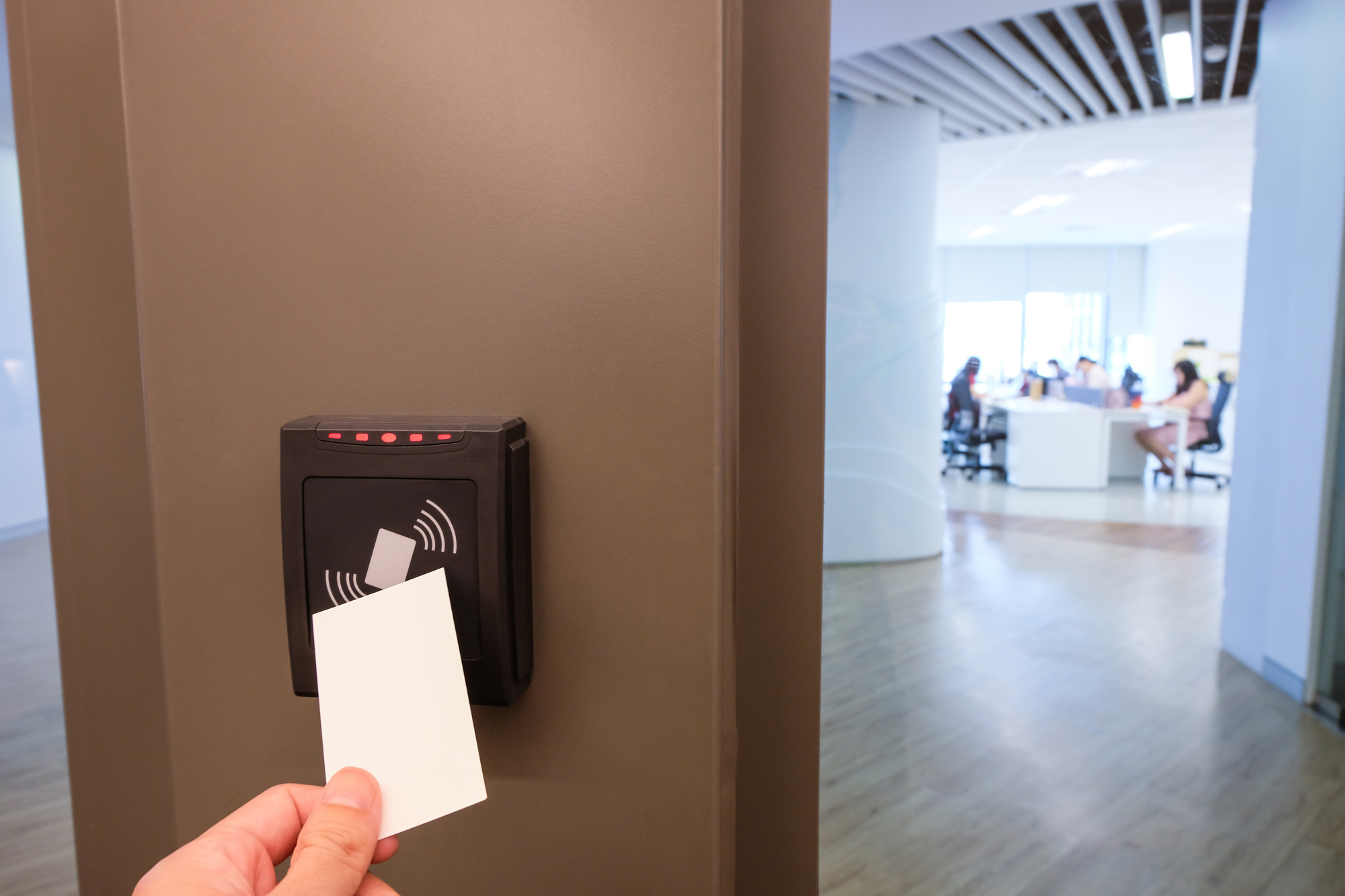What Are Access Control Panels?
An access control panel or controller is a central hub that connects all access control hardware components, including the credential readers, locks, alarm systems and request-to-exit sensors.
Access control panels play a vital role in restricting unauthorized users from entering a room. For instance, when a user presents access credentials to the card reader, it communicates with the control panel to determine whether the access credentials are valid or not. The access control panel checks the access credentials with the local copy of the database to authorize the user’s entry to the building. If access credentials are valid, the control panel sends a signal to the door hardware to unlock the door.
The main benefits of an access control panel are:
- It quickly decides whether to open a door or escalate the event by triggering an alarm.
- It records the door access events and user movements associated with the credential.
This article explains the features you must look for while evaluating and procuring access control panels
Features to Look for in Access Control Panels
The access control industry has many providers that offer access control panels. However, it’s advisable to invest in your security for the long-term by purchasing access control panels that are non-proprietary, compatible with the software of your choosing, compliant and reliable.
Non-proprietary Hardware
Since proprietary access control panels are controlled by the provider, you may need to dispose of them when you plan to upgrade or replace your existing access control software. Proprietary hardware is not only expensive but also complex to maintain.
Non-proprietary hardware, however, is designed based on an open architecture. When a need arises, this feature makes it easier for you to upgrade or replace the existing software without changing the hardware components. .
Non-proprietary access control ensures you don’t get locked into a contract with poor access control software.
System Compatibility
You may be using different types of access control readers, electric or magnetic locks and other hardware peripherals. These could be from brands like Mercury Security, STid, Honeywell, and Wavelynx for your building’s physical security.
Since the access control panel is the centralized hub that enables connectivity and functionality of the access control network, it is compatible with many third-party peripherals. The lack of compatibility in proprietary systems may force you to replace all of your existing hardware components, including access readers and locks.
Therefore, you should make sure that the access control panels you choose are compatible with multiple types of access control door readers, door locks, alarm systems, CCTV systems and other devices on the network.
Compliance
Compliance is the top priority for enterprises of all sizes. Security administrators must follow the standards and regulations of how people gain access to a building, how permissions are managed and how the data is stored.
Access control hardware should be compliant with UL 294, Federal Communications Commission (FCC), and Open Supervised Device Protocol (OSDP).
- UL 294: It ensures that the access control devices and systems are designed as per the safety and regulatory standards for non-hazardous operations.
- FCC: FCC certification makes sure that all electronic products, IT equipment, and electromagnetic compatibility products meet the regulated limits of ionizing radiation. You may need to check the FCC Registration Number (FRN) or Suppliers Declaration of Conformity (SDoC) to confirm if the product is FCC certified.
- OSDP: Developed by Security Industry Association (SIA), this protocol replaces the old Wiegand Interface and comes with features such as AES-128 encryption, advanced functionality, ease of use and more interoperability.
Procuring access control panels that meet the above-mentioned compliance standards and protocols will ensure the overall functionality of access control and organize data storage.
Interoperability
Enterprises use different types of on-premises physical security systems and logical access control systems to protect their physical assets. If the access control panel you choose does not have ports to connect with the existing physical access control systems, you may not be able to facilitate fully integrated building security.
This is where the feature of interoperability comes in. Interoperability refers to the ability of different components to share data between them, both via software and hardware. Access control panels must connect with other systems to seamlessly communicate and process data without the involvement of administrators.
Reliability
Access control panels should be reliable to avoid concern of unauthorized parties entering the building. Security administrators should choose an access control panel that can assign role-based credentials. This will protect your critical building assets so that they are not vulnerable to external threats.
Genea Cloud-based Access Control is Your Solution
Door access control panels are an integral part of an access control solution. They connect all other access control hardware components to increase the security at the building and provide a high quality access control experience to users. You should make sure to choose access control panels with features such as non-proprietary, interoperability, scalability, system compatibility, reliability, compliance and high-level security.
The size of the deployment is the biggest factor in deciding which type of access control panel you would install. If you are a small scale organization with a single door or two-door office, a standalone access control kit may be sufficient. However, large-scale organizations with multiple locations and hundreds of doors must choose an access control board that supports at least 24 doors and a cloud-based access control software for centralized management.
Genea offers a cloud-based access control system that allows you to monitor all doors, gates, and access points from a centralized dashboard. It enables your security admins to assign access keys in any form, including physical key fobs, RFID cards, biometrics and mobile keys. Genea’s access control products can be integrated with your existing tech stack to streamline the physical security operations of your building. For instance, you can integrate Genea with video management systems such as Rhombus Systems, Milestone Systems, and Eagle Eye Networks that help visually verify the identity of users requesting access to a particular room in real-time.
Book a demo of Genea security solutions to learn how they enable centralized management for physical security operations.






